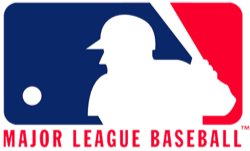In a totally unrelated case, the California Supreme Court made a ruling on contractors vs. employees that could end up affect an ongoing legal battle over back Minor League Baseball player wages.
The particular ruling came in a case concerning how Dynamex Operations West treat its drivers. In a unanimous decision issued Tuesday, the court determined that the company should treat drivers as employees as opposed to independent contractors, effectively meaning that the drivers are granted protections under the Fair Labor Standards Act. California is not the only state grappling with this issue, as other companies and municipalities are clashing over a contractor vs. employee classification.
That ruling comes as amidst an ongoing legal debate over whether MLB has violated minimum wage laws in its pay for minor league players. The Dynamex case could come into play through the judges’ ruling, as the justices defined work by the terms of the “ABC” test, which can be used to determine whether an individual is an employee or an independent contractor. An attorney representing the players believes that this ruling could work favorably for their case, as it could apply to their work routines in spring training and the offseason. Now, because Congress addressed the issue moving forward earlier this year in an omnibus spending bill that basically exempted MLB from most labor laws, but it was not retroactive. More from The New York Times:
“The California Supreme Court adopted a definition of work that is good for us,” said Bruce Simon, one of the lawyers representing the players. “That part is positive.”
Simon represents a group of players suing M.L.B. to be treated as hourly employees rather than exempted salaried employees who have fewer protections, as is the case now.
The California ruling adopted the Industrial Welfare Commission’s definition of work, which states that to employ means to “engage, suffer or permit work.”
That broad definition, Simon said, should be applied to the players because their routines in spring training and the off-season — including practices, games and conditioning sessions — certainly classify as work, at least in California.
The case Senne v. Office of the Commissioner of Baseball has been certified as class action, with a focus on players who participated in a California league, instructional league or extended spring training. It alleges that MLB has violated minimum wage laws, and might go to trial in the coming years to address back wages. Despite the presence of minor leaguers in the lawsuit, MiLB is not a party in the proceedings
Traditionally, MLB has viewed minor league players as seasonal apprentices, making their pay exempt from minimum wage requirements. There had been attempts to clarify that law at the federal level until recently, when a federal spending bill signed by President Donald J. Trump in March specifically exempted minor league players from federal labor laws. That law, however, is not retroactive, so players could still seek damages from the period before it went into effect.
RELATED STORIES: Report: Spending Bill Could Exempt MiLB Players From Labor Laws; MiLB Player Wages Class Action Suit is Back; Plaintiffs Granted Appeal in MLB Wages Lawsuit; No Class Action for MiLB Player-Wage Lawsuit–For Now;Debate Rages Over MiLB Overtime Legislation; Legislation Would Exempt MiLB Players From Overtime Regs; Lawsuit seeks more money, freedom for Minor League Baseball players

